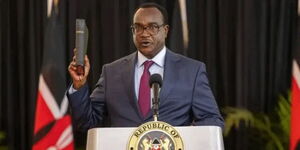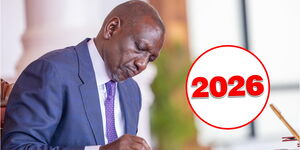Since 2020, the richest one per cent have captured almost two-thirds of the new wealth created globally, according to an Oxfam report, 'Survival of the Richest' dated January 16.
According to the charitable organisation's report, super-rich fortune increases by nearly Ksh334 billion daily.
Painting a grim picture of wealth inequality, Oxfam indicated that the world's super-rich are increasing their investments while other ordinary Kenyans make sacrifices to afford essential goods and services.
"While ordinary people are making daily sacrifices on essentials like food, the super-rich have outdone even their wildest dreams. Just two years in, this decade is shaping up to be the best yet for billionaires —a roaring ‘20s boom for the world’s richest," stated Gabriela Bucher, Oxfam International's Executive Director.
How They Doubled Their Wealth
According to Oxfam, billionaires gained much wealth during the pandemic. Defending their findings, the charitable organisation explained that the bourgeoisie gained wealth during that period as the government pumped funds to support the economy, increasing their assets.
The spiralling food and energy prices that affected Kenya and other countries created gains for the rich. The report further indicated that corporates made profits from the increase in food and energy, which in turn doubled payouts for a few wealthy individuals.
"Food and energy corporations are seeing record profits and making record payouts to their rich shareholders and billionaire owners," Oxfam indicated.
Tax relief also contributed to the super-rich's wealth acceleration from 2020 to 2023. Besides tax waivers, the report added that most super-rich inherits wealth that is not subjected to tax.
"Only 4 cents in every dollar of tax revenue comes from wealth taxes, and half the world’s billionaires live in countries with no inheritance tax on the money they give to their children," the report indicated.
Further, the report indicated that the super-rich's wealth surged due to increased debts from countries. As countries continued accumulating debts from foreign countries, their shares in big corporations also soared.
In addressing the inequality gap, Oxfam advocated for an increase in tax imposed on the super-rich.
"Taxing the super-rich and big corporations is the door out of today’s overlapping crises. It’s time we demolish the convenient myth that tax cuts for the richest result in their wealth somehow ‘trickling down’ to everyone else," Bucher.
The report lauded President William Ruto for introducing a wealth tax to increase revenue to fund his government projects.
"In Kenya, the new President, William Ruto,has revived the idea of wealth taxes to fix the budget," the Oxfam report read in part.












